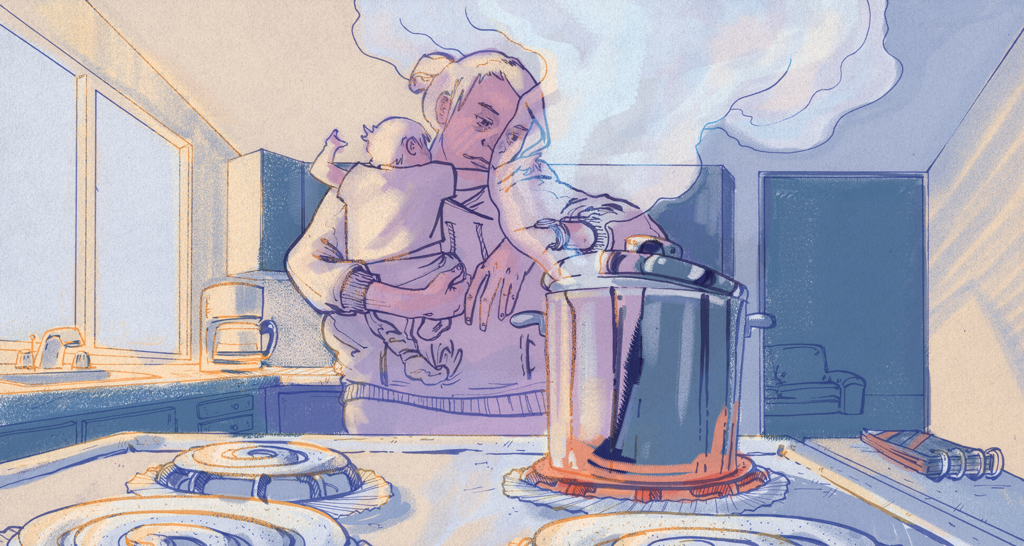Water has been on the mind of Winnipeggers following the city-wide boil-water advisory, which lasted from the evening of Tuesday Jan. 27 to the afternoon of Thursday Jan. 29. Following this temporary inconvenience, there has been increased public dialogue surrounding the issue of access to safe drinking water. However, lack of access to clean water is hardly a new issue for several First Nations communities across Canada. The community of Shoal Lake 40 First Nation, for example, has been living within the constraints of a boil-water advisory for nearly two decades.
“Aren’t they used to it?” some may ask.
“I don’t think you can get used to anything like this,” is Chief Erwin Redsky’s response.
The chronic inconvenience doesn’t become any less inconvenient over time. When a disenfranchised community is forced to take extra steps to obtain that which is readily available to others, social, physical, and psychological disparities ensue.
Time
Those of us accustomed to accessing safe drinking water from our taps surely caught ourselves having to consciously adjust our daily routine to factor in the few minutes necessary to bring our water to a boil. How can such a seemingly undemanding task throw us so off course? One argument could be that “we aren’t used to it.” But what if this temporary reality became a rather permanent one? Doling out time to prepare water significantly hinders everyday schedules and puts individuals at a disadvantage in comparison to the larger population.
Time must be set aside for this additional step, whether it is acquired through sleep deprivation, sacrificing basic self-care, or forgoing extracurricular activities. What seems to be merely minutes adds up, eventually creating a disparity between those with clean running water and those without. This is particularly significant for individuals already strained by a demanding work schedule, or providing for young children within their households. Although men in traditional heterosexual two-parent households are becoming increasingly involved in domestic caregiving, women still assume the majority of the responsibility relating to child care. Boiling water for children, whether for their formula, their water bottle, or even their bath, thus genders the issue.
Money
Following the boil-water advisory, many Winnipeggers rushed to the store to buy bottled water, aware that boiling their water within the next few days would significantly alter their schedules. The inconvenience of boiling water, for many, outweighed the exorbitant cost of bottled water. Many Winnipeg stores sold out of water within hours of the city-wide announcement.
“The news came on at six and we sold out by seven,” said one Safeway employee. “We ordered more in and sold out later that night.”
What about those who cannot afford to buy bottled water? Chief Redsky noted that trucking water to Shoal Lake 40 First Nation from Kenora by ice road or ferry is very expensive, and must be doneon a weekly basis. The sheer cost of obtaining a natural resource freely accessible to many puts communities like Shoal Lake 40 First Nation at a significant economic disadvantage.
Health and hygiene
Human beings are composed of about 60 per cent water. What happens, then, when our bodies are deprived of the water we need not only to survive, but to thrive?
Lack of access to safe drinking water can lead to the dehydration of those who can neither set aside the time to boil water nor afford to buy bottled water. Hydration is even more important than nutrition. Severe dehydration causes stark health complications, namely heat stroke, hypovolemic shock, and kidney failure.
Even a temporary, moderate decrease in daily water intake can have immediate effects on our well-being. The human brain itself is composed of roughly 75 per cent water. Cognitive ability is adversely affected by even mild dehydration. This leads to increased irritability and hindered concentration levels, symptoms which decrease workplace performance and impact students’ academic abilities.
Aside from the immediate effects of dehydration on our bodies, lack of clean running water can also force those without access to compromise their hygiene to avoid exposure to harmful waterborne diseases or chemicals. Skipping out on brushing our teeth or even bathing children then becomes part of a greater cycle of inequality in which those without access to basic resources may become targets of microaggressions or harassment in everyday social interactions.
We cannot avoid using water indefinitely, and communities like Shoal Lake 40 First Nation are routinely forced to take the risk of using unsafe water. Despite the severe health threat of waterborne diseases, “we have no choice but to bathe our kids in it,” said Redsky.
Our neighbours still lack clean water
Those of us who can readily access clean water through our faucets have had the privilege of calling these 48 hours an “inconvenience.” Perhaps the brief change of routine has even forced some of us to realize how much we depend on our faucets. However, the vast majority of Winnipeggers knew this change of routine would only be temporary. We cannot stop caring as soon as living without access to safe running water reverts to a seemingly hypothetical scenario. We cannot stop talking when this issue continues to affect our fellow citizens.



